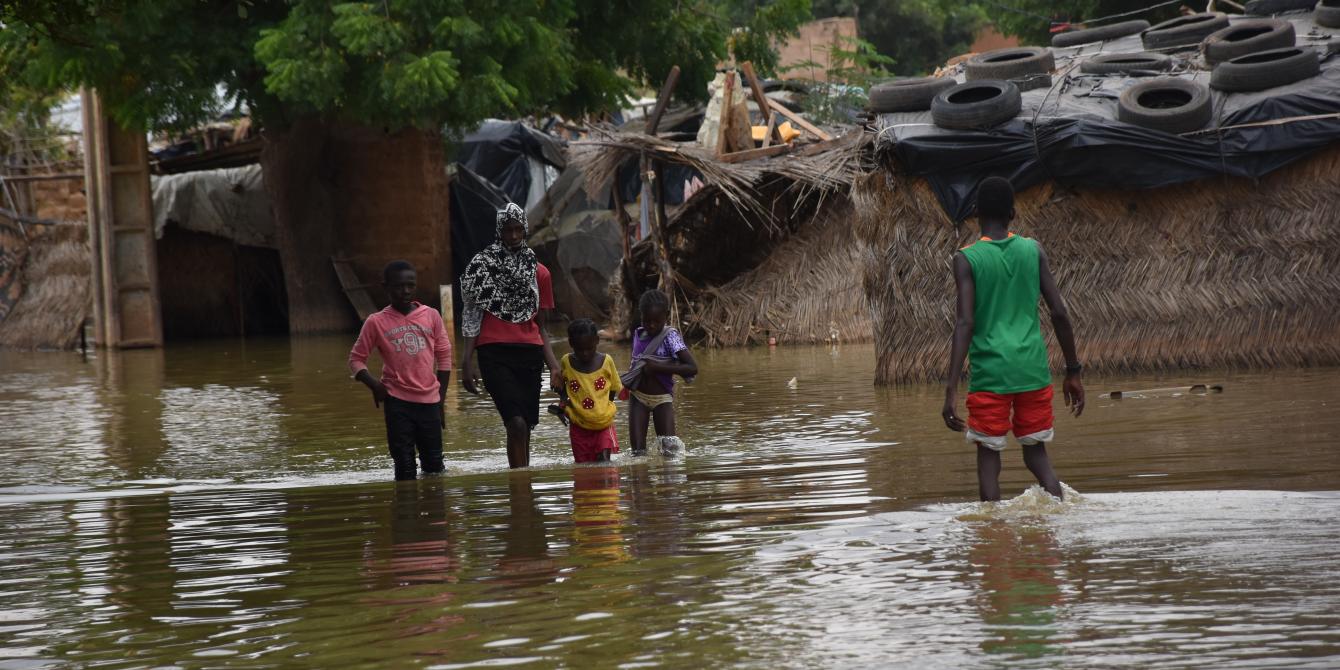Half a million people affected by historic floods in Niger

Niamey, Tuesday, September 29, 2020 - The historic floods in Niger, which have caused 4 times more people to be affected this year than the previous year, have tipped more than 516,000 disaster affected people into an emergency, causing colossal loss of life and material damage in this country plagued by multiple crises.
"COVID 19, food insecurity and now floods! The situation is critical, with 516,000 people affected and additional needs in a country that already has 187,000 internally displaced persons due to the security crisis and nearly 3 million people in need of urgent assistance. The State has managed to provide one-off aid to about half of the affected population, but the needs remain enormous. We need funds to develop and strengthen our response on the ground as quickly as possible," said Tchiroma Ali Ahamadou, Director of Oxfam in Niger.
While its predominantly rural population lives exclusively on income from agro-pastoral resources, Niger is one of the countries in the world most affected by climate change. Between droughts and floods, natural disasters are multiplying, leading to a considerable drop in the purchasing power of rural populations already impacted by extreme poverty and the loss of several thousand hectares of cultivated land and thousands of head of livestock.
We have no more activities because the water has invaded our crops, the gardens are also devastated and that was our source of food, says Garba, a market gardener who is now impacted by the disaster.
"On the sites we visited, thousands of poor people often sleep in groups of 50 people in makeshift shelters, in the open air or under trees. This exposes them even more to diseases such as coronavirus or malaria. "says Hassane Harouna, Oxfam's Food Security and Livelihoods Officer.
In this context, inequalities are exacerbated and women are on the front line. Oxfam wants to put in place monitoring to prevent any kind of gender-based abuse or exploitation. "I couldn't save my belongings, the water was up to my neck, I saved my children and now I have nothing left, not even a grain of rice. We took refuge in a school but with the start of the school year, we will have to leave and live in the street" testifies Kadidja, mother of 7 children.
According to Niger's Humanitarian Response Plan (OCHA, 2020), $516 million is needed to meet the urgent needs of Niger's population and only 41% is covered. Oxfam wants to distribute food aid and basic necessity kits. Since the fields of crops have been flooded, Oxfam also wants to support households in the revival of agricultural activities. Awareness-raising activities will also be carried out to prevent health risks following the floods.
- Photos, videos and testimonials from the field are available upon request.
Bintou Moussa, bintou.moussa@oxfam.org +227 91 62 62 42

 Follow us on Facebook
Follow us on Facebook Our videos on YouTube
Our videos on YouTube Follow us on Twitter
Follow us on Twitter